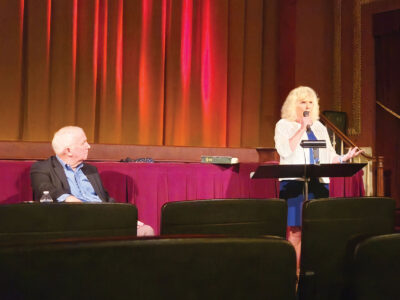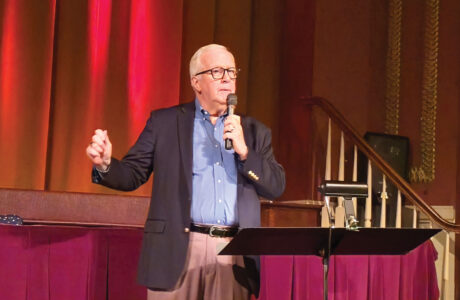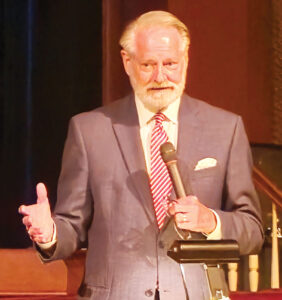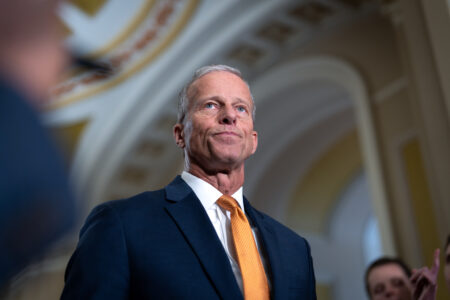Smoot lecture series turns attention to West Virginia’s municipal governments
- From left, Emcee Ken Watts listens to Ripley Mayor Carolyn Radar discuss how mayoral duties operate in Ripley during a lecture series at the Smoot Theatre on Sunday. (Photo by Gwen Sour)
- Ken Watts welcomes attendees to a lecture on the different forms of government in West Virginia on Sunday afternoon at the Smoot Theatre. (Photo by Gwen Sour)
- Former Huntington Mayor Steve Williams discusses the changes to Huntington’s government over the decades while speaking at a lecture series at the Smoot Theatre on Sunday. (Photo by Gwen Sour)
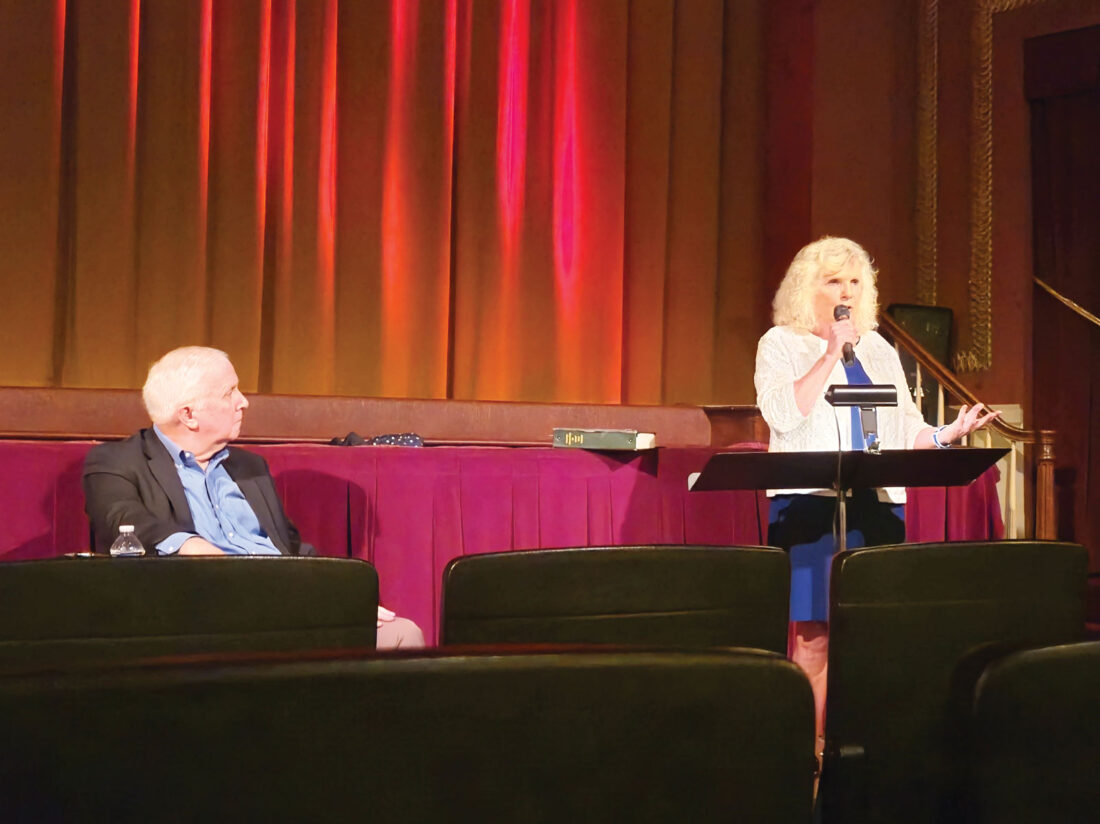
From left, Emcee Ken Watts listens to Ripley Mayor Carolyn Radar discuss how mayoral duties operate in Ripley during a lecture series at the Smoot Theatre on Sunday. (Photo by Gwen Sour)
PARKERSBURG — Over a dozen area residents gathered at the historic Smoot Theatre for a recent installment of a community lecture series focused on civic education, this time turning attention to municipal government in West Virginia.
Ken Watts, former CEO and president of West Virginia Credit Union, helped organize the event, welcomed the audience and provided context for the lecture. The ongoing series, which began last year, has featured a range of topics, from local theater history to regional landmarks of the American Revolution. A recent lecture by a high school coach on athletics in Parkersburg inspired audience members to request deeper insight into how local governments operate in the Mountain State.
“We wanted to provide some clarity and definition on topics of interest,” Watts said. “Today’s session focuses on the different types of municipal government in West Virginia and how they function under state code.”
Two guest speakers, Ripley Mayor Carolyn Radar and former Huntington Mayor Steve Williams, led the discussion, offering insights into how different governance models impact cities of various sizes.
Radar, who has served as mayor of Ripley since 2007, shared her experience leading a smaller city without wards or districts.
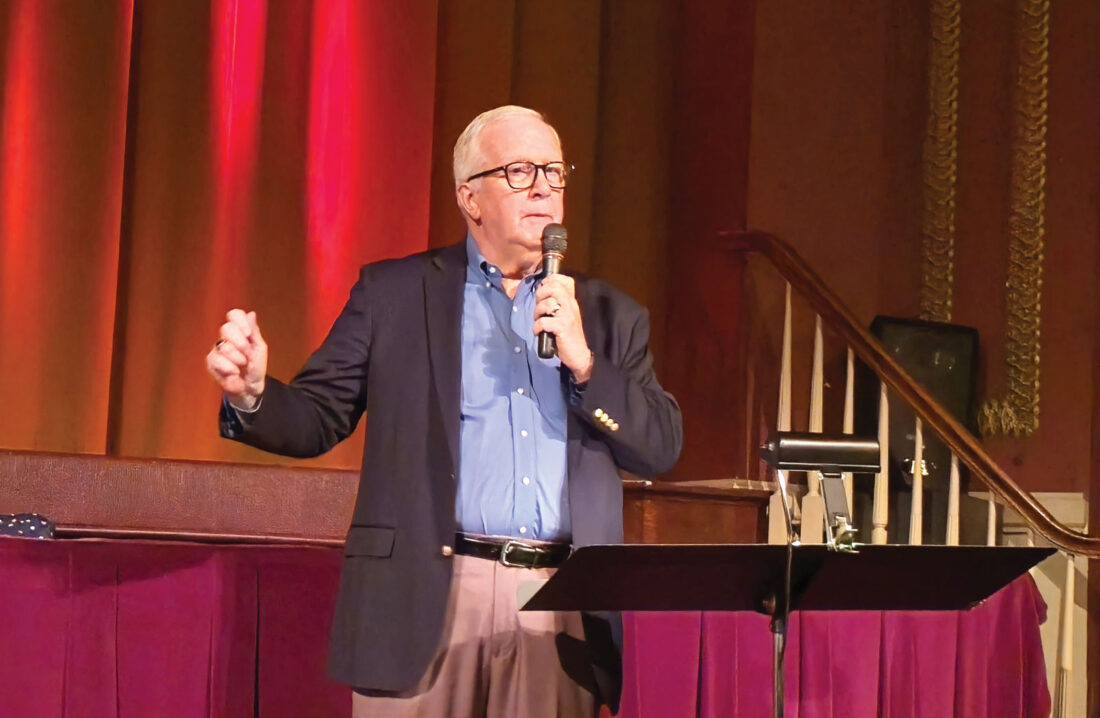
Ken Watts welcomes attendees to a lecture on the different forms of government in West Virginia on Sunday afternoon at the Smoot Theatre. (Photo by Gwen Sour)
“Our population is just over 4,000, and sometimes three members of council live on the same street,” she said. “We keep our meetings open, our communication constant, and our government accessible.”
Radar detailed the city’s structure as a “weak mayor, strong council” model, but emphasized that the title can be misleading.
“I work seven days a week because people know they can walk in and talk to me,” she said. “In a smaller city, the mayor…presides over every meeting. She is over supervising all the employees over the police department, sewer department, maintenance and garbage, all of those employees.”
She credited strong communication with city staff and council as the key to effective governance.
“It’s a 13-letter word, and it’s everything: communication,” she said. “That’s how we avoid surprises and get things done.”
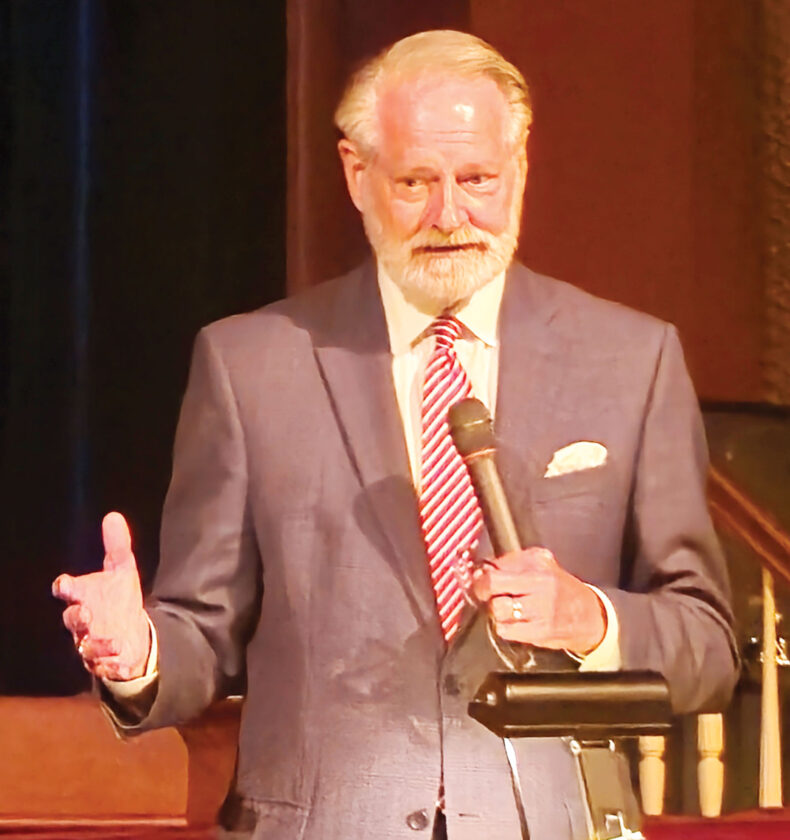
Former Huntington Mayor Steve Williams discusses the changes to Huntington’s government over the decades while speaking at a lecture series at the Smoot Theatre on Sunday. (Photo by Gwen Sour)
Former Mayor Williams brought a perspective from his time as Huntington’s city manager in the 1980s and later as the city’s first three-term elected mayor. He reflected on the charter review process that led Huntington to shift from a city manager model to a strong mayor form of government in 1985.
Williams compared the differences between his roles in city council, as city manager, and later as mayor. He emphasized the importance of continuity in leadership and the ability of any system to work when implemented well.
“Any system can work — if you let it,” Williams said. “[When] I was the city manager…all I needed in order to get something done was to have four votes out of the seven members of council. If I got the four votes, then we were golden and would move forward. Then, when I became mayor, there’s a substantial majority, tens of thousands of people that have had a vested interest in my success.”
He also spoke about the challenges Huntington faced during his tenure, including national scrutiny for poor health rankings. “I used to say, ‘There’s only one name on the board,’ and that meant taking full responsibility — good or bad,” Williams said.
The Smoot Theatre lecture series is open to the public and continues later this year with more sessions focused on local history, government, and civic engagement.
Gwen Sour can be reached at gsour@newsandsentinel.com.

